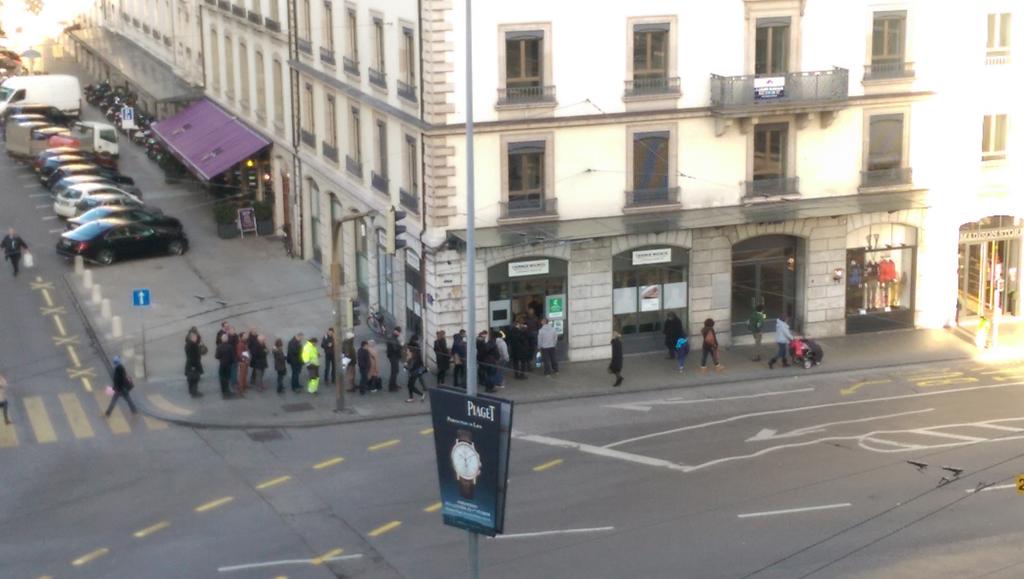Today, those same developed nation hecklers are deathly silent after what may be the biggest western central bank faux pas in recent history, and which in addition to sending the Swiss Franc soaring has - perhaps for the first time in history - manifested in lines of people in front of currency exchange bureaus nowhere else, but in that bastion of capitalism: Geneva.

What's going on? AFP explains:
"It's like Christmas all over again!" enthused Vanessa, as she joined a swelling queue outside a currency exchange office in downtown Geneva Thursday.
The 28-year-old hospital orderly was one of many across Switzerland rushing to cash in on a soaring Swiss franc.
Minutes after a shock announcement from the Swiss central bank that it was abandoning the minimum rate of 1.20 francs against the euro, the safe haven Swiss currency strengthened almost 30 percent to 0.8517 against the common European currency before easing back to 1.0421.
"I heard the news this morning. I'm so happy!" Vanessa, who refused to give her last name, told AFP outside of one of many mobbed exchange offices in Geneva.
She has reason to be extatic: she is one of some 280,000 people working in Switzerland but living and paying bills in eurozone countries France, Germany or Italy.
These so-called "frontaliers", or border-crossers, are the biggest winners in Thursday's Swiss franc surge, seeing their incomes jump 30 percent in the blink of an eye.
Vanessa said she was contemplating "changing all of my Swiss franc savings into euros".
Other frontaliers were also celebrating Thursday, but said they would not immediately buy large amounts of euros.
Panic buying?
"For those of us living in France and working in Switzerland, this is great!" said Doina Bancila, a 40-year-old bank employee.
"But I don't want to buy euros in a panic. I'll wait for next week or the week after to see how the situation evolves," she told AFP.
Gaelle Voisin, another resident of France, meanwhile said she had only learned about the bonanza she had in store when she turned up at the exchange office.
"I was really surprised to see all of these people here," said the 40-year-old radio presenter, adding she at first thought the crowd was waiting to buy the latest copy of Charlie Hebdo, in tribute to the 12 people killed in last week's attack on the satirical weekly's Paris office.
"I was just going to do a simple exchange, and then this. It's good for me, and for all the French people working in Switzerland," she said.
Many Swiss residents were also rubbing their hands over their booming currency, envisioning vacations abroad and perhaps buying up cheaper real estate on the other side of the border.
"This could mean we can take cheaper euro vacations ... and if you want to buy a secondary home in France, this is a good thing," 70-year-old wealth manager Charles Gutowski told AFP.
But, he added, the Swiss central bank itself will loose a fortune, since it has huge foreign currency reserves, and large Swiss companies will take a beating.
"This is going to cause a lot of trouble," he said.
Swiss business leaders called the central bank's decision a disaster, with banking giant UBS saying it would lead to a drop of 5 billion francs worth of exports and knock 0.7 percentage points off overall output growth.
"I am at a loss for words," Swatch group's boss Nick Hayek told news agency ATS. "What the SNB has sparked here is a tsunami."
The Swiss watchmaking giant was the biggest loser on a Swiss stock exchange bathed in red Thursday, with its shares sinking 16.4 percent.
The Swiss exchange's main SMI index lost nearly nine percent Thursday.

No comments:
Post a Comment